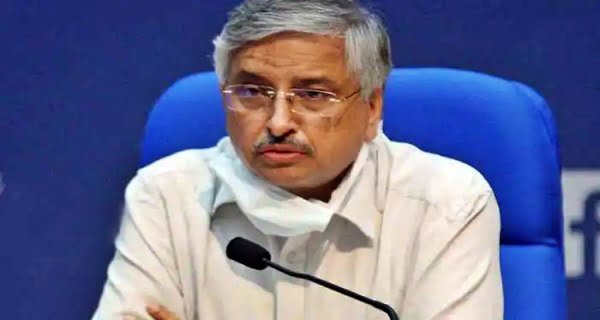
New Delhi: The delta plus variant of coronavirus may affect the efficacy of the vaccines available in India but it will still be effective against the variant, said AIIMS Director Randeep Guleria on Wednesday. The delta plus is a variant of interest and not of concern yet, he said. On the limitation of vaccination in preventing the spread of COVID-19, the senior doctor said that people may contract the virus even after getting inoculated but “our main aim is to prevent deaths and serious illness”.
On the issue of the increased gap between the two doses of the Covishield vaccine, he said the current data looked at by the National Technical Advisory Group on Immunisation (NTAGI) has found evidence that the delay increases the immunity against COVID-19. However, he added, “As the data emerges, the authorities may change the protocol but as of now the data is quite solid on the current duration.”
Addressing concerns over the government’s decision to increase the gap between two doses of Covishield from four-six weeks to 12-16 weeks, Guleria said, “When the data was evaluated, the alpha variant was dominant and it has changed, the delta variant is more dominant now. Both variants are infectious, even the alpha variant was found more infectious than the previous variants. The data need to be looked at critically. A further decision can be taken once the data is looked at critically and they look at it from the point of view of getting the crude data. It has to be taken after looking at the scientific evidence and can’t be a knee-jerk reaction.”
In view of a spike in new coronavirus cases in the United Kingdom, which has vaccinated almost 62 percent with the first jab and fully inoculated 44 percent of its population, Guleria commented on the question of limitation of the vaccination drive saying, “We are always saying that vaccination has its limitation in terms of infection. I think we need to again understand what is the protection that the vaccine gives. To a large extent, the vaccine will definitely protect you from severe disease, in terms of hospitalization or death. But the vaccine may not protect you that much from the infection. You may still get the COVID-19 infection but it may be milder or you may be asymptomatic and you will recover quickly because you have antibodies in your blood. You may be infected and may spread it to others but the virus will not multiply to the extent that it will cause severe damage to your body.”
Emphasizing the priority of the government and the health authorities, he said, “Our main aim is to prevent deaths and serious illness. We will also decrease the number of cases but that may not happen at a larger extent than what we see as far as mortality is concerned.”

As delta plus emerges as a new variant of the coronavirus, Guleria addressing concerns around the latest mutant, said, “Currently, the delta plus is a variant of interest. There is not much data to show that this is becoming dominant or more infectious or causing more mortalities. Having said that, we need to see how this evolves, whether it remains a variant of interest or it becomes a variant of concern.”
“Currently, the cases are few. It doesn’t seem to be a major cause of concern. As far as delta variant is concerned, it is a variant that is more infectious, it is spreading rapidly. It is now taking over from where there was the alpha variant. Delta variant has become a variant of concern because it is spreading rapidly at a global level,” he said.
Guleria reiterated the importance of COVID-appropriate behavior as he asked people to avoid crowding, wear masks, sanitize hands, and maintain social distancing. It is important to open up in a gradual manner, he said. The AIIMS director further suggested measures such as good surveillance to locate hotspots and contain the virus there itself. He added, “Do basic research to see that the emerging variants are not increasing deficiency of vaccines and if that is there, we need to be able to modify our vaccines quickly so that they are effective against the new variants.”
Further, on the question of a possible third wave of coronavirus, the AIIMS director said, “A lot depends on our behavior. If we are able to avoid crowds, super spreader events, and carry out aggressive surveillance, containment measures, and vaccination, the third wave may not be very large and may be delayed. It depends on how we behave in the next few months.”

















































